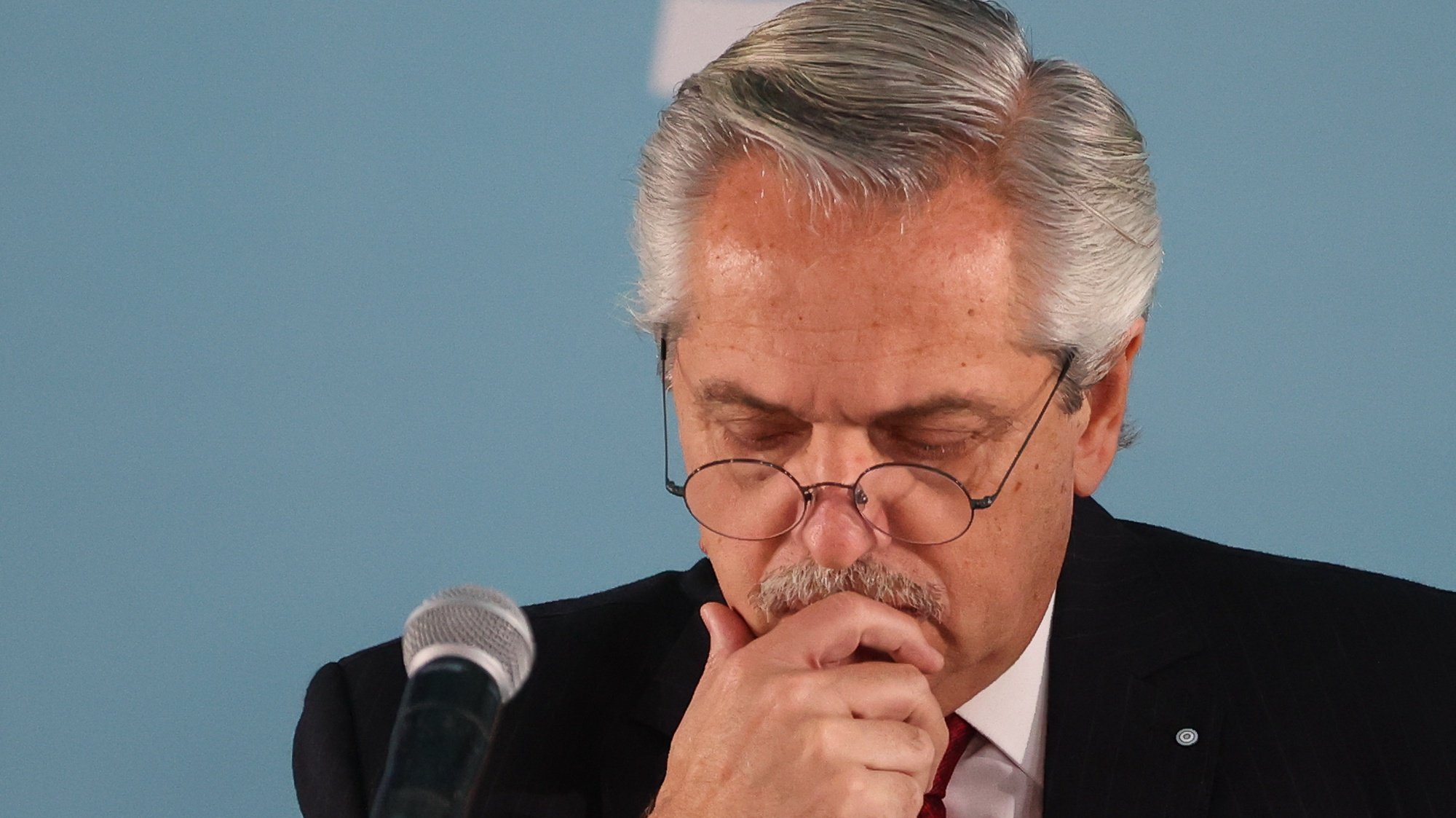The Argentine president will use his two speeches and six bilateral meetings on Monday at the G7 Summit to propose Argentina as a stable and reliable substitute supplier of Russian gas for Europe and food for the world.
For South America in general, but for Argentina in particular, an incredible window of opportunity has opened to maintain food security in the world, energy security, the supply of minerals and fertilizers instead of what the countries at war produced”, explains to Lusa Dante Sica, former Minister of Production of Argentina (2018-2019) and director of the consulting firm Abeceb, specialized in trade and investment in Latin America.
“Europe needs new suppliers and will look for them in places where there is peacean attribute that has now become tangible from an economic point of view”, adds the expert.
Given this potential, Argentine President Alberto Fernández was the only guest from Latin America for German Foreign Minister Olaf Scholz, host of the event. Scholz declared Argentina a “G7 partner country during the German presidency” when he identified the possibility of a new supplier.
German Chancellor expresses G7 concern over world economic situation
It was after the trip to Europe, in mid-May, in which the Argentine president visited, in addition to Olaf Scholz in Germany, President Emmanuel Macron, in France, and the Prime Minister, Pedro Sánchez, in Spain.
On that trip, Alberto Fernández defended that Latin America, Africa and Asia intervene in the search for a peaceful solution to the war, as they are the ones affected with the greatest risk of a famine scenario.
The Argentine president repeated the concept last Friday, during the virtual Summit of the BRICS, an acronym for Brazil, Russia, India, China and South Africa, in English.
“I want to raise my voice so that the world understands that, although the war takes place in Europe, its tragic consequences reverberate throughout the southern hemisphere. We are a periphery that suffers”, insisted Alberto Fernández.
“Argentina is a safe and responsible food supplier, recognized in the field of biotechnology. We have great energy resources such as the second world reserve of ‘shale gas’ and the fourth of ‘shale oil’. We started to explore lithium, green hydrogen and other renewable energies”, pointed.
The Argentine president will make two speeches in plenary and bilateral meetings with the prime ministers of Great Britain, Boris Johnson; Italy, Mario Draghi; Japan, Fumio Kishida; and Germany, Olaf Scholz. Also with the President of the European Commission, Ursula Von der Leyen, and with the President of the European Council, Charles Michel.
In addition to defending that Argentina has the potential to meet the demand for food and energy, Alberto Fernández will request investment. Although Argentina has the second largest unconventional gas reserves in the world, capable of returning it to self-sufficiency and continuing to supply Europe, the country requires strong investments to extract, transport and transform natural gas into liquid for export.
MEPs give green light to new EU gas storage rules
Argentina is also one of the world’s largest producers of corn and wheat, precisely the two products most affected by the war in Ukraine.
However, the Argentine economy is in disarray. The degree of arbitrary government intervention in price controls, foreign exchange market restrictions and capital movements discourages investment. The country does not have access to the international credit on which it depends to get ahead.
“Argentina has a great opportunity, but it requires investment. The country was seen almost as an international pariah until the beginning of the war. You are now invited to the G7 meeting. Did the country change? No. But it has potential. What changed was the world in relation to what Argentina can offer”, Marcelo Elizondo, a business consultant and specialist in international markets, a benchmark in Argentina, explains to Lusa.
“If the country organizes itself, European and North American companies can come to explore for oil and gas or generate wind and solar energy. It can increase the production of cereals. Argentina cannot respond immediately because it lacks infrastructure, but it can respond in two or three years.“, calculates Elizondo.
In addition to Argentina, the other five countries outside the G7 invited to this meeting are Senegal, Indonesia, South Africa, India and Ukraine, the latter virtually.
India is one of the countries most at risk of food shortages due to war. On Sunday, Alberto Fernández held a bilateral meeting with the Prime Minister of India, Narendra Modi, to also position Argentina as a supplier to a market of 1.39 billion inhabitants.
Source: Observadora
